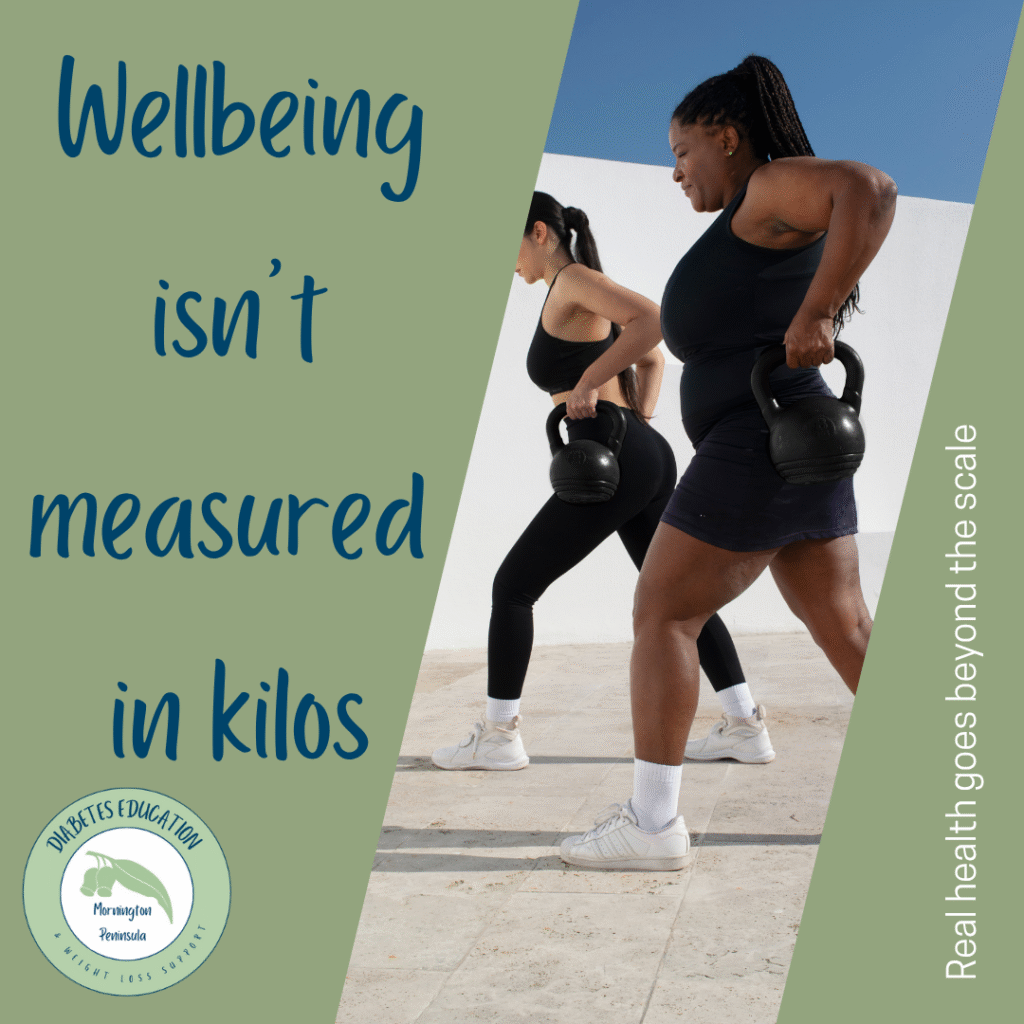Trying to lose weight — and stay there — is one of the hardest journeys many people ever take. It’s frustrating, it can feel unfair, and sometimes it seems like your body is working against you. But there’s growing science that helps explain why weight loss is so difficult, and more importantly, why health is far more than what the scale says. You deserve to know the full story and feel empowered, not judged.
Genetics, Biology, and Body Acceptance
Our bodies aren’t blank slates. Genetics shape our build, fat distribution, appetite signals, and even how efficiently we burn energy. That means two people can eat and move in very similar ways, yet their weight and shape may differ dramatically.
Accepting that our bodies come with unique blueprints doesn’t mean “giving up.” It means working with your biology instead of against it, and focusing on what you can influence — your health, wellbeing, and quality of life.
Body acceptance isn’t about ignoring health; it’s about recognising that your worth is not defined by a number on the scale.
Hormones and Metabolism Don’t Forget — Even After Years
A key study by Priya Sumithran, Joseph Proietto and others (Melbourne, Australia) showed that after people lose weight, many appetite‐regulating hormones (like leptin, ghrelin, peptide YY, insulin and others) shift in ways that push you to eat more and burn less. These changes stay after weight loss.
More recently, in 2016, the “Biggest Loser” follow‐up study (by Fothergill et al.) found that even six years after dramatic weight loss, participants still had a much lower resting metabolic rate (RMR) than would be expected given their body size/composition and age. In other words, their bodies were still burning fewer calories at rest than predicted, years after the intensive diet and exercise challenge.
These findings mean: your body doesn’t “reset” immediately after weight loss. The internal biological pressure to regain weight lasts — sometimes for years. That doesn’t mean you lack will power, it makes you human.
Professor John B. Dixon (Australia) has done a lot of work showing how obesity is tightly linked to diabetes and how treatments that go beyond just diet can improve health in powerful ways.
Some key findings:
- Even moderate weight loss can improve insulin sensitivity (how well your body responds to insulin) and β‑cell function (how well the insulin‑producing cells in the pancreas work).
- Bariatric surgery (like gastric sleeve or bypass) can often lead to remission of Type 2 diabetes in a substantial proportion of people—especially when obesity is severe, and especially when the diabetes hasn’t been longstanding.
- He also emphasises that obesity is a chronic condition needing long‑term care, not something people should be expected to fix fast or alone.
Why Focusing on Health, Not Just Weight, Really Matters
Because metabolism and hormones can work so strongly, focusing only on the scale can do more harm than good. Here’s how shifting the lens to health helps:
- Better markers than weight alone: Things like blood sugar, blood pressure, cholesterol, sleep quality, mood, mobility, joint pain, energy levels — these often improve long before big changes in weight happen.
- Self‐worth and identity: If we tie our value to a number, every small setback can feel like failure. But viewing progress in terms of health fosters self‐compassion and resilience.
- Sustainable habits: Focusing on health encourages habits that feel good and last — choosing nourishing food, finding joyful movement, rest, stress management — rather than extreme diets meant for quick scale loss.
- Long‐term maintenance: Given metabolic and hormonal adaptation, weight maintenance needs support. Prioritising health gives you multiple wins, even when weight shifts up and down.
- You aren’t defined by the scale. Your body is reacting to biology, history, environment — you’re working with many forces, not laziness or failure.
You Are More Than a Number
You are more than a set of digits on a scale. You’re the nights you sleep sounder, the moments you laugh more easily, the steps you take without discomfort, the lab results that improve — yes, even the resolve it takes to keep going. Health is holistic.
Sometimes society tries to measure us by how much we weigh.
Real health is about how well you are living, not just what you weigh.

References
- Long‑term persistence of hormonal adaptations to weight loss. Sumithran P, Prendergast LA, Delbridge E, Purcell K, Shulkes A, Kriketos A, Proietto J. N Engl J Med. 2011;365(17):1597‑1604.
- Fothergill E, Guo J, Howard L, Kerns JC, Knuth ND, Brychta R, Chen KY, Skarulis MC, Walter M, Walter PJ, Hall KD. Persistent metabolic adaptation 6 years after “The Biggest Loser” competition. Obesity (Silver Spring). 2016;24(8):1612‑1619
- Improvements in insulin sensitivity and β‑cell function with weight loss in the severely obese. Dixon JB, O’Brien PE, etc. Diabetic Medicine. 2003;20(2):127‑134.
- Impact of laparoscopic adjustable gastric banding on type 2 diabetes. Dixon JB. Obesity Reviews. 2012;13(1):57‑67.
- Obesity and Diabetes: The Impact of Bariatric Surgery on Type‑2 Diabetes. Dixon JB. World Journal of Surgery. 2009;33:1444‑1448.
